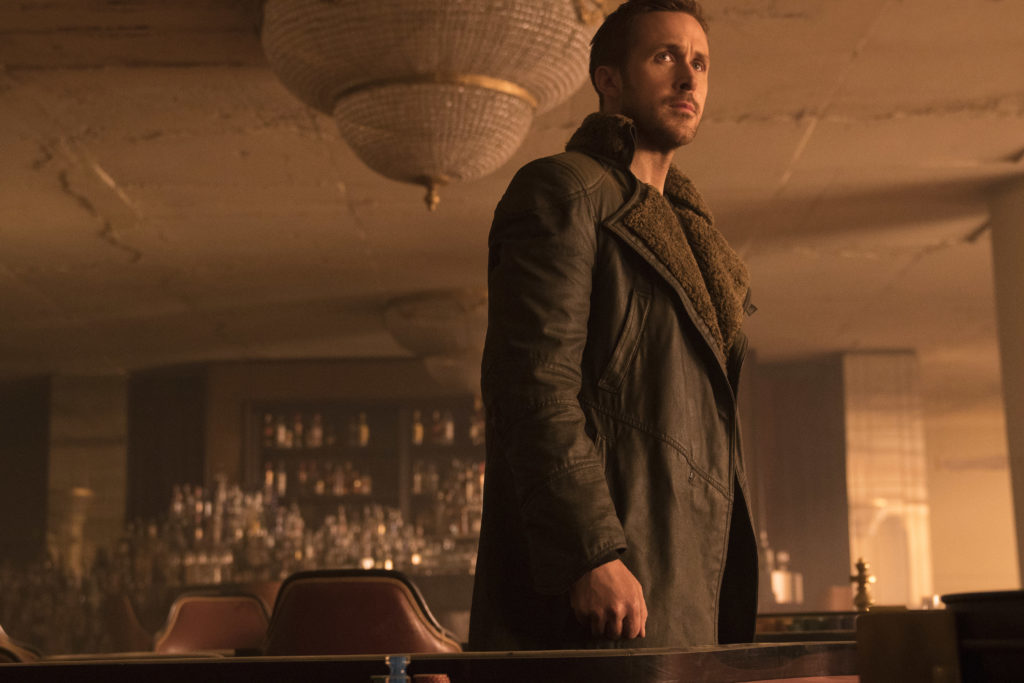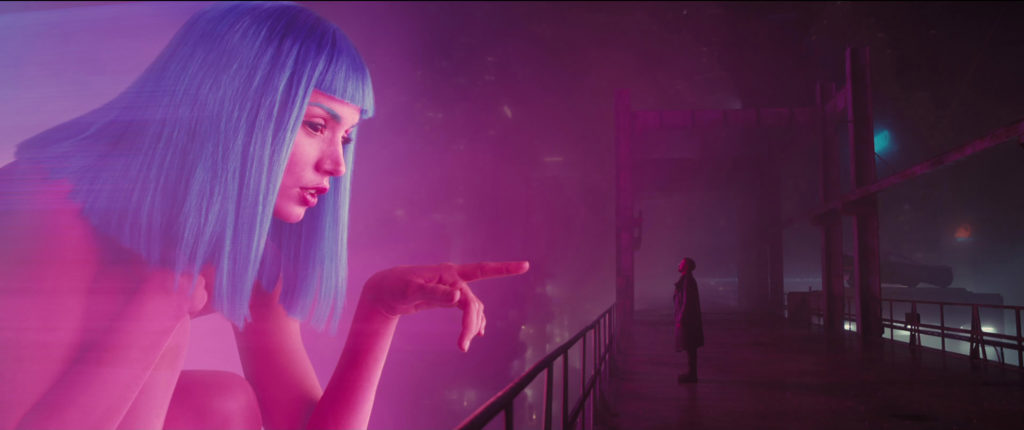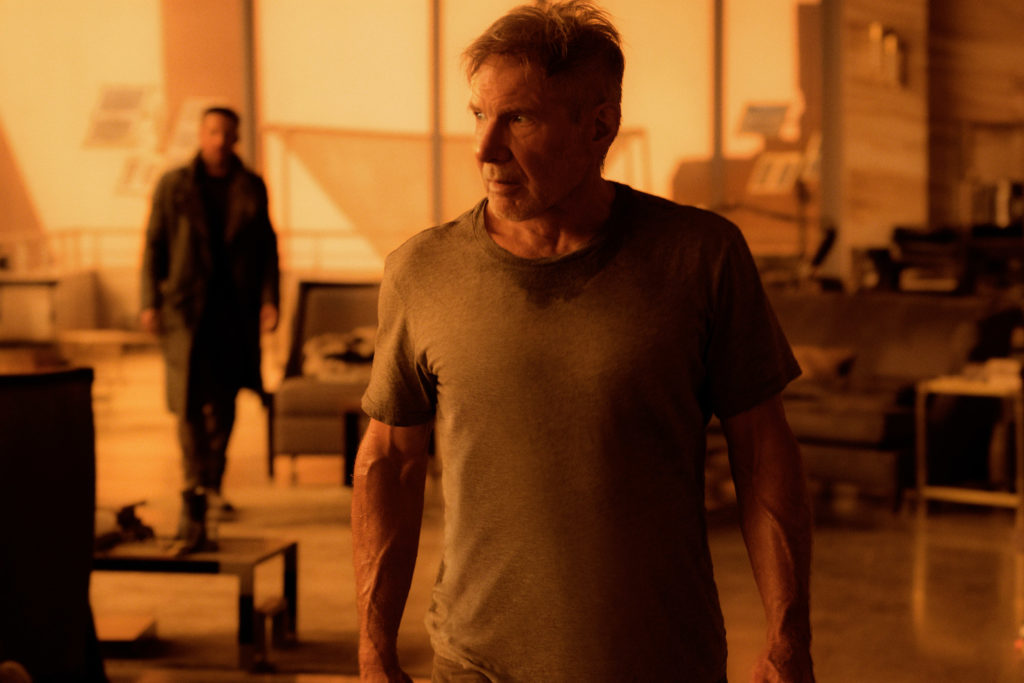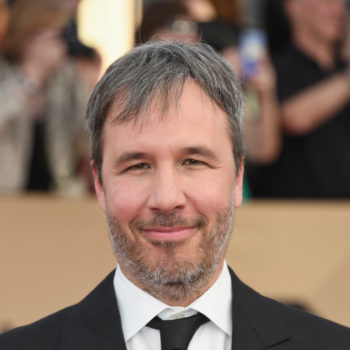French Canadian director Denis Villeneuve is perhaps best-known for directing thrillers and science fictions films like “Sicario” and “Arrival,” which received eight Academy Award nominations, including Best Director.
His latest film, “Blade Runner 2049,” is a sequel to “Blade Runner,” the science fiction classic that was released 35 years ago. The new film takes place 30 years later, this time with Ryan Gosling playing the replicant hunter. Harrison Ford reprises his role from the original film as former blade runner Rick Deckard.
Rico talked to Denis about his memories of the first film, how he signed onto the project, the movie’s bleak view of the future and more.
Interview Highlights:
On his experience with the first “Blade Runner”
Denis Villeneuve: The first movie blew me away. I mean, it blew my mind. It’s the movie I saw the most in my life, for a very specific reason. It’s just that the movie happened to open, and a few years later, it was the birth of the VHS technology. So you could own a movie yourself, like a book. That was a revolution for me.
Rico Gagliano: So you watched the tape over and over again.
Denis Villeneuve: Exactly! I remember how powerful this idea was for me, that I didn’t need to go to the theater or to wait for months for the movie to be shown on TV. I could watch the movie when I wanted. I watched that movie so many times.
Rico Gagliano: How old were you?
Denis Villeneuve: About 14. And, I remember the impact, the aesthetic impact, of the movie at the time. One thing that was very strong in the first “Blade Runner” — and that I had not seen before — was this idea of stratification of time. You felt the past and the future, meaning that you could walk in the street in “Blade Runner” and see a car from the ’80s in front of you. Or you could see a computer and an old-fashioned television side by side. This idea that, like in reality, the past was not totally erased, was so brilliant.
On how he was tapped to direct the sequel

Rico Gagliano: So then they come to you and tell you that you’re being courted to make the sequel for this movie that has such an impact on you. What was your first reaction when you heard that?
Denis Villeneuve: The story started a bit earlier. One day I was doing a movie, “Prisoners,” and Andrew Kosove and Broderick Johnson, the producers, suddenly they stopped the meeting and said, “We apologize to you, and we need to start another meeting, because Ridley Scott just arrived.” And Just before closing the door, they said, “We’re thinking about making a sequel of ‘Blade Runner.'” Bang! I was like, “What?!?” For me, it was like, “Oh wow! What a fantastic, bad idea. What an insane idea.”
Rico Gagliano: Why did it seem so crazy to you?
Denis Villeneuve: Because the first movie, for me, was like a kind of masterpiece in its own genre. There’s things like that you should leave alone. Let’s face it, in the history of cinema, there’s not a lot of movie sequels that are done well. I’m not talking about box office, I’m talking about the result. There’s “The Godfather,” that was a very strong sequel.
Rico Gagliano: “Jaws 2.”
Denis Villeneuve: [Laughs.] But, why? You know? Why would you do such a thing? But my mind changed when I read the screenplay.
On the role of technology in “Blade Runner 2049”

Rico Gagliano: One of the main themes in this movie is talking about technology. And, I was trying to figure out what the attitude is that you’re trying to get across about technology.
Because on one hand, there’s a plot point involving the world losing all digital information, so mostly what remains is on paper. Which seems to be a kind of anti-technological stance. But then you’ve got heroes who are robots. Some of whom are actually more humane than humans. What do you want us to walk away with, as far as our attitudes towards technology?
Denis Villeneuve: I think humility. To be more humble with nature, and the danger of walking in that direction. We like to play God. We like to compete with nature, and I think that it’s not a good thing. I think we should go back to a more humble relationship with nature.
Rico Gagliano: Would you consider yourself maybe tech-positive? Are you much of a tech guy? I mean, you’re in a very tech-savvy industry.
Denis Villeneuve: One of the things I love about filmmaking is that it’s like a dance between very old-fashioned technology… One of the thing[s] I’m proud of is that the movie is like an example of very old film techniques, and also things that have not been done before.
Rico Gagliano: What’s the old-fashioned technique?
Denis Villeneuve: Well, to build the sets [laughs]. To build everything. It sounds crazy today to say that, but that’s the first thing that all the actors ask me. “Will we be acting in front of green screens, with green chairs, and green props for six months?”
We built all the sets, all the buildings, the apartments, the streets. We built the old universe. I tried to have as much real things as possible in front of the camera. We did models for the city. It’s almost a lot art to create models for a cityscape, miniatures of buildings. But there was always something real in the stream.
On his view of the future

Rico Gagliano: I know that you talked to futurists a lot when you were kind of designing the world. Talking to them about what the future might hold, what it might look like. Is there something that you learned from these futurists that maybe altered the original ideas of the film?
Denis Villeneuve: No, because what we learned as we were talking with scientists, is that we were in the right direction.
Rico Gagliano: Which was?
Denis Villeneuve: The thing is I don’t want to give too much spoilers. From a climate point of view, it was quite nightmarish.
Rico Gagliano: Climate change?
Denis Villeneuve: Yeah.
Rico Gagliano: Environmental collapse, let’s say, is a theme of the film. I would say the first “Blade Runner” movie is very dark. This movie is downright bleak. And I would kind of use that word to describe most of your films, with the exception of “Arrival.” Why are you so glum?
Denis Villeneuve: I will say that it was important to me to have sparks of beauty in this world. It’s a difficult environment, but beauty still exists. People are struggling to bring beauty even in the trash.
Rico Gagliano: I will say all of the protagonists in your movies, as I’m thinking about it, are kind of struggling to do something optimistic in the face of what seems like crushing odds.
Denis Villeneuve: Maybe that’s the way I feel, as a human being, right now. I’m worried, but I don’t want to be cynical. That would be the end. I try to keep hope, even in the darkest moments.


